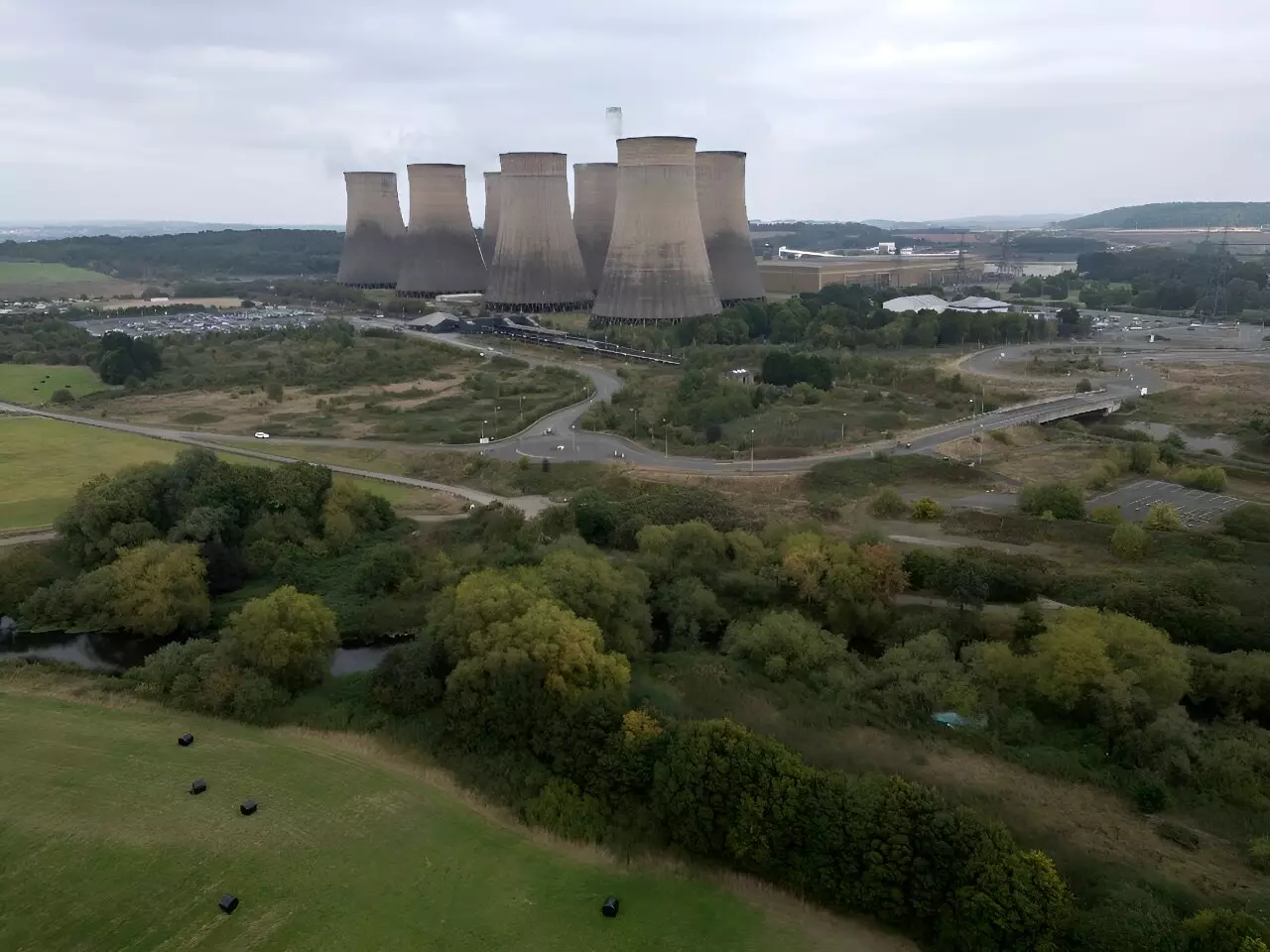The landscape of energy production in the United Kingdom is transforming dramatically as it officially closes its last coal-fired power station, Ratcliffe-on-Soar, on Monday. This pivotal moment in energy policy places the UK at the forefront of climate action, making it the first member of the G7—a group of the world’s largest economies—to completely move away from coal for electricity generation. While the closure signifies the end of an era characterized by coal dominance since the Industrial Revolution, it also heralds a shift towards a more sustainable and modern energy economy.
The closure of Ratcliffe-on-Soar epitomizes the British government’s broader ambitions to decarbonize its electricity supply by 2030 and achieve total carbon neutrality by 2050. Energy Minister Michael Shanks underscored the significance of this transition, framing it not only as a farewell to fossil fuels but also as a starting point for the emergence of new energy-related jobs. This indicates a keen awareness of the economic implications of such a transition, acknowledging the necessity to bolster the job market alongside environmental reforms.
The strategic dismantling of coal power is crucial within the context of international commitments made at recent climate summits, including COP28. Doug Parr from Greenpeace UK noted the global responsibility to follow Britain’s lead, suggesting that phasing out not only coal but also oil and gas will be instrumental in combating climate change. This closing of the coal chapter is indeed symbolic, as it represents a broader global narrative of shifting toward sustainable energy practices amidst rising environmental concerns.
Historically, coal played a monumental role in powering the UK’s economy, serving as a pillar during the Industrial Revolution. However, its importance has waned significantly over the years. Mirroring the global trend of declining fossil fuel reliance, the share of coal in the nation’s energy mix dropped from 70% in the 1980s to a mere 1% last year. The shift is indicative of a collective societal awakening—where the necessity for cleaner energy has prompted systemic changes in production and consumption patterns.
While Ratcliffe-on-Soar once had the capacity to meet the energy needs of millions, it has recently only been utilized sporadically during periods of extreme demand, such as severe weather conditions. These factors raise important questions about the dependability of coal—a dwindling resource struggling to compete with the increasing viability of renewable energy. In 2023, the National Grid ESO reported that wind power accounted for a quarter of the UK’s electricity, while natural gas provided a third, marking a significant transition toward diversified and sustainable energy sources.
As Britain embarks on its new journey without coal, Uniper, the power plant’s operator, has outlined plans for a two-year decommissioning process. This period will focus on repurposing the site into a “carbon-free technology and energy hub.” This move not only underscores the company’s commitment to sustainability but also speaks to a broader trend in the energy sector where transitioning away from traditional fossil fuels fosters innovation and job creation in emerging sectors, such as renewable energy.
The incoming Labour government aims to advance this transition even further. Its ambitious green energy initiatives focus on investing in offshore wind, tidal power, and nuclear energy—reinforcing the commitment to decarbonization. By establishing a publicly owned entity dedicated to these objectives, the government is paving the way for a comprehensive strategy aimed at boosting economic growth while ensuring environmental sustainability.
The closure of the Ratcliffe-on-Soar power station marks a historic turning point in the energy landscape of the UK, characterized by a commitment to sustainability and a strategic shift toward renewable energy sources. While the transition away from coal has been gradual, the implications are profound—setting a benchmark for other countries to replicate. As the UK navigates this new chapter, it not only celebrates the end of its dependence on coal but also embraces a future rich with opportunities for clean energy innovation and job creation, thus demonstrating that progress and environmental responsibility can indeed go hand in hand.


Leave a Reply